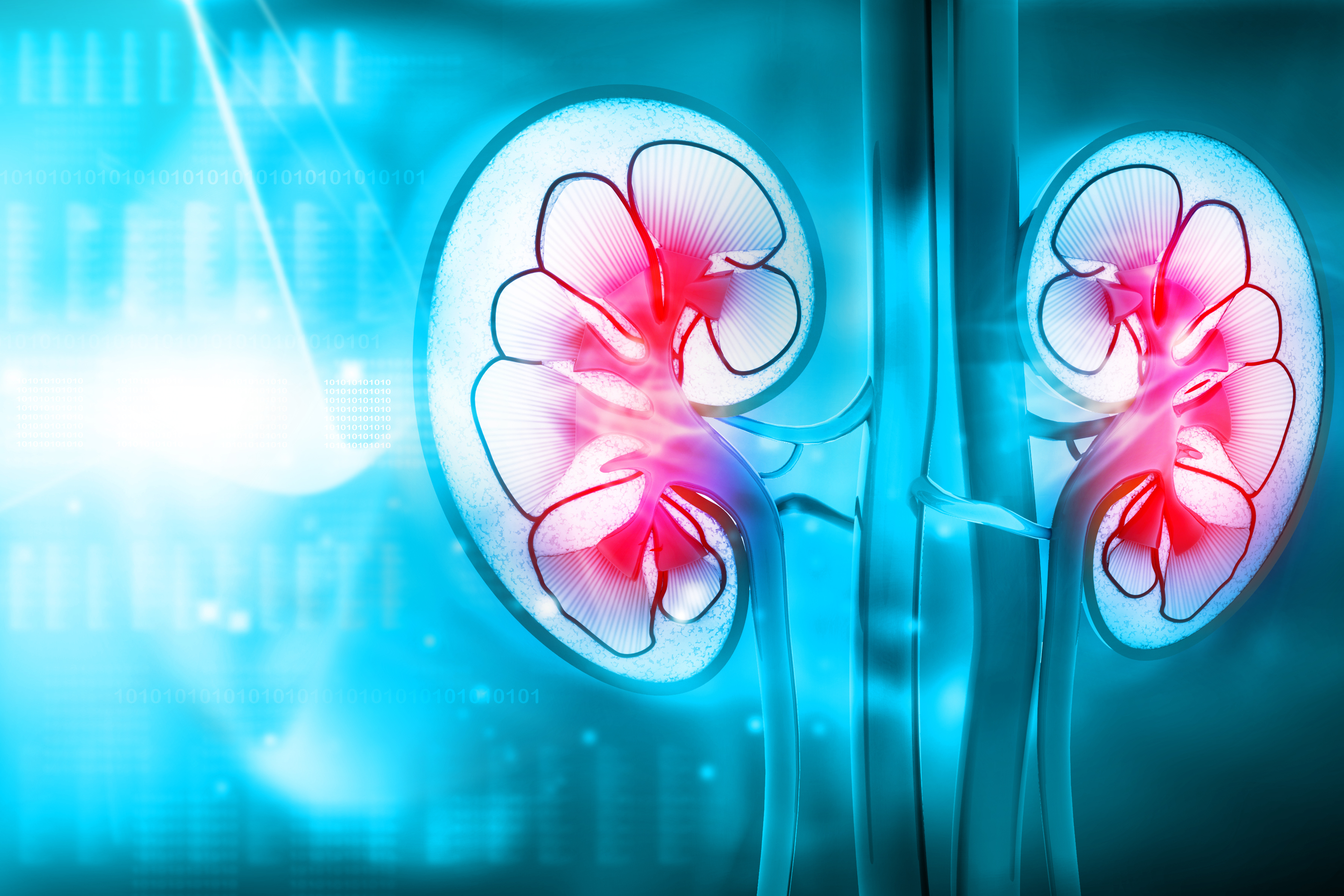
(Vienna, 26 September 2019) The transcription factor GATA3 regulates gene expression in many developing tissues. A study group at the "Marie Curie Laboratory" for translational nephrology and immunopathology of the kidneys at MedUni Vienna's Department of Pathology has now identified its role in glomerular development in the kidneys. In future, it could serve as a marker for disease activity in inflammatory diseases of the renal filtering apparatus, the glomeruli.
Mesangial cells support the glomeruli, the filtering apparatus of the kidneys, and play an essential role in maintaining glomerular function. Damage to these cells often results in progression to chronic kidney diseases (CKD) such as IgA and diabetic nephropathy. However, the transcription factors involved in mesangial cell development and function are largely unknown.
GATA3 is a double zinc-finger transcription factor that regulates gene expression in many developing tissues. In the kidney, GATA3 is essential for ureteric bud branching, and mice who do not have it fail to develop kidneys. In humans, autosomal dominant congenital GATA 3 mutations can cause renal aplasia (failure of kidney development) as part of so-called HDR (hypoparathyroidism, deafness, renal dysplasia) syndrome that also can include mesangioproliferative glomerulonephritis.
This suggests that GATA3 may have a hitherto unrecognised role in glomerular development or injury. In order to clearly determine this role, this study investigated GATA3 expression in kidneys of mice with the GATA3 gene removed, and in the kidneys of humans and rodents with inflammatory glomerular diseases.
It was found that GATA3 is essential for normal glomerular development in mice and that GATA3 is significantly raised in an active inflammatory glomerular disease such as mesangioproliferative glomerulonephritis or IgA nephropathy. This points to GATA3 having an essential role in maintaining glomerular function and now provides new information about the role of GATA3 in mesangial cell development.
The finding that GATA3 could serve as a marker for disease activity in inflammatory glomerular diseases in tissue sections remains to be tested and validated in further steps.
The paper was published in the prestigious Journal of the American Society of Nephrology and its significance was acknowledged in an editorial.
The Marry Curie Laboratory for translational nephropathology and immunopathology of the kidneys, led by Renate Kain at MedUni Vienna's Department of Pathology is dedicated to the study of autoimmune kidney diseases and translation of the results into applied routine diagnosis of kidney diseases. Its research work focuses on autoimmune native kidney diseases – in particular vasculitis and complement-associated diseases – with an overlap to kidney transplant research. The laboratory is named in recognition of the substantial funding it has received from the European Commission's Marie Sklodowska Curie Actions. Currently, two ESRs (early stage researchers) are completing their doctoral theses within the framework of the EC-funded Marie Skłodowska-Curie Innovative Training Networks HELICAL (HEalth data LInkage for ClinicAL benefit - Extracellular Vesicles (EV) as markers of active disease in AA; http://helical-itn.eu/about/)
From 2015 until 2017, lead author Irina Grigorieva worked in Vienna as a postdoctoral scientist with a Skłodowska-Curie Intra-European Fellowship in the Laboratory for Translational Nephropathy and Immunopathology of the Kidneys (Marie Curie Laboratory) at MedUni Vienna's Department of Pathology. Since 2018, she has been working as a postdoctoral scientist at the Wales Kidney Research Unit, Division of Infection and Immunity, College of Biomedical and Life Sciences, Cardiff University, UK.
Service: Journal of the American Society of Nephrology
"Grigorieva IV, Oszwald A, Grigorieva EF, Schachner H, Neudert B, Ostendorf T, Floege J, Lindenmeyer MT, Cohen CD, Panzer U, Aigner C, Schmidt A, Grosveld F, Thakker RV, Rees AJ, Kain R. A Novel Role for GATA3 in Mesangial Cells in Glomerular Development and Injury. J Am Soc Nephrol. 2019 Sep;30(9):1641-1658"